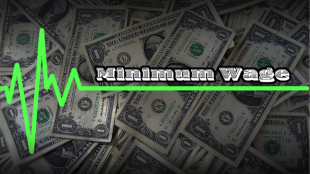The West Coast Migration: How California’s Battle with Climate Change Has Affected the Cost of Living
(Source) Boasting the fifth largest economy in the world, the Golden State is a beacon for various American industries, such as entertainment, technology, and agriculture. Yet population growth has halted. Some who reject the “California Dream” attribute the decline in growth to a so-called West Coast migration, pointing to Tesla’s recent move to Texas, along with that of tens of thousands of other Californians. Others attribute it to a baby bust and a downward trend in international immigration. While these factors, along with the devastation of an international pandemic, have led to the state’s population standstill, the high cost of living seems to remain at the heart of the issue. Although housing costs are largely to blame for the rising cost of living, numerous natural disasters have posed an insurmountable direct and indirect cost to residents. California’s public policy response to climate change could serve to foreshadow what is to come for the nation as a whole. Among the most outspoken states in favor of zealous climate change policy, California is also one of the most vulnerable, encountering some of the first largescale effects of climate change in the United States. It has most notably been struck by worsening drought, [read more]


